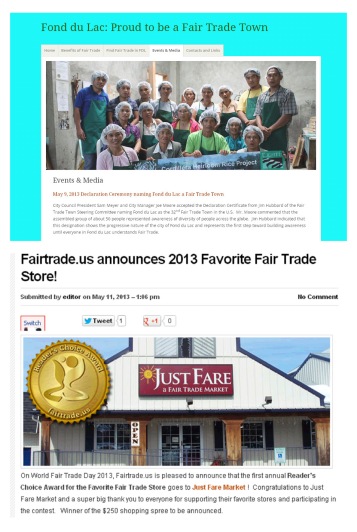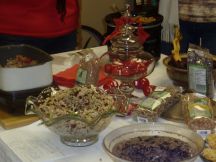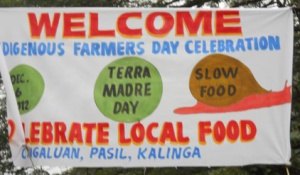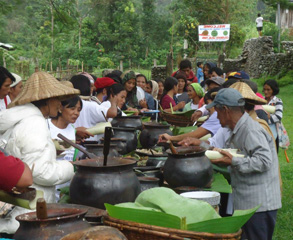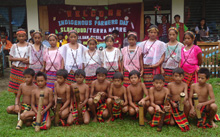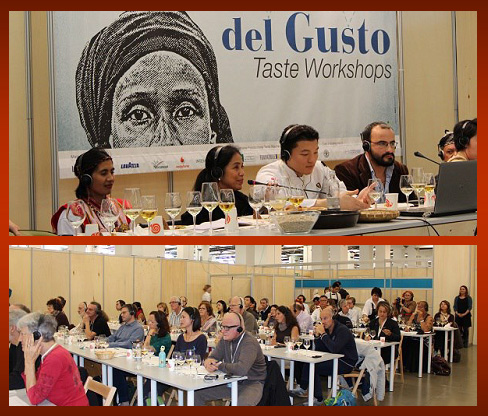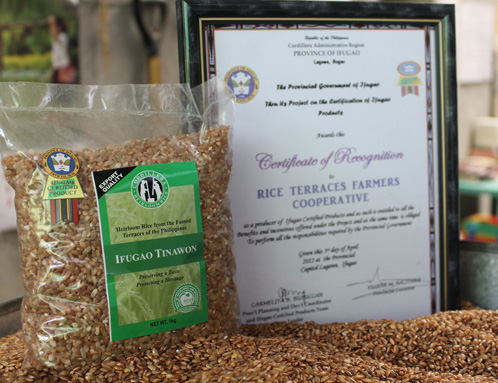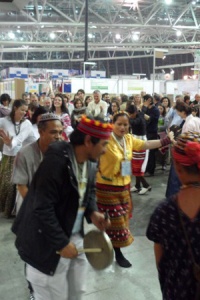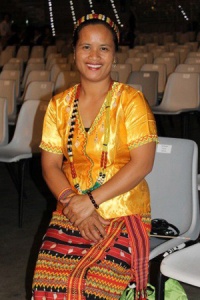On May 5, 2012, Rose Soneff and the Global and Community Action Committee of the Kamloops United Church (BC, Canada) hosted “Raising More than Rice” a delicious Filipino dinner and a narrated slideshow about the terraces and the Cordillera Heirloom Rice Project.
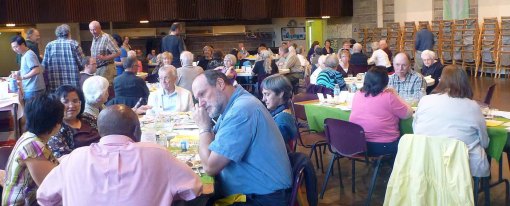
A great turnout of support from the Kamloops community
Over 70 people enjoyed a dinner of traditional Filipino dishes cooked by Rose, her family and church volunteers. Several varieties of heirloom rice from the terraces were used in preparing the meal.
Over a scrumptious coconut/sticky rice dessert that was made from the dark purple rice of Barlig, Mountain Province, Rose shared stories and pictures from her recent trip to the Philippines, her visit with farmers of the Rice Terrace’s Farmers Cooperative in Banaue, Ifugao and their effort to build a sustainable business for the sale of their heirloom rice. Everyone at the dinner went home with a complimentary gift bag of heirloom rice.
The event raised over $1600 to fund a series of quality control trainings and to purchase needed processing supplies for farmers involved in the Cordillera Heirloom Rice Project. The funds were used by Vicky Garcia and the staff of RICE, Inc to facilitate seven two-day quality control trainings in seven different municipalities across three provinces.
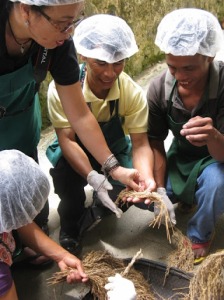
Inspecting the rice panicles
A total of 200 farmers participated in the seminars with 52 farmers attending
in the municipalities of Hungduan and Banaue, Ifugao; 117 farmers participating in seminars in the municipalities of Sadanga, Bauko, Tadian and Barlig, Mountain Province; and 31 farmers participating in the seminar held in Pasil, Kalinga. 78% of the participants were women.
Each training began with a sharing of experiences by members who had previously participated in the project’s rice consolidation and processing. A group activity followed in which farmers identified production problems within their areas.
Other sessions addressed the principles of Fair Trade in developing the project; what Fair Trade means for selling in the local and international market; and ways to strengthen the cooperative.
The second day focused on the Quality Control requirements for selling a premium quality product. During the session, farmers had the opportunity to discuss the issues/problems encountered during rice production in relation to meeting quality control standards, and what measures/solutions would help farmers meet those quality standards.
The final training session concluded with a hands-on activity focusing on rice processing.

Funds from the event purchased new heavy duty screens
A couple of the comments shared by the farmers during the assessment segment of the training:
- The training is very informative. I learned something new about our rice, that quality begins with good seed and lasts until processing.
- I am encouraged by this training… we were given the opportunity to ask and assess our level of understanding about our product; it is very empowering to be part of this training.
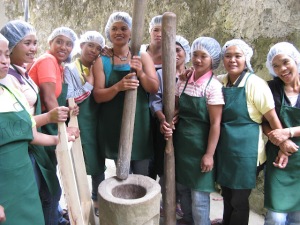
Participants in the Hungduan training
As a small NGO, these trainings would not have been possible without the support given by Rose and the Global and Community Action Committee. We are hoping that a long-term relationship can be built between the farmers and this wonderful group from Kamloops United Church.
And finally, the story comes full circle. A photograph taken during the Quality Control training in Ifugao will appear in the 2013 FTF/FTRN Fair Trade Calendar. This story began when a calendar photo moved a wonderful woman named Rose and she decided to make a difference.

Rose in Banaue
Maraming Salamat po!




